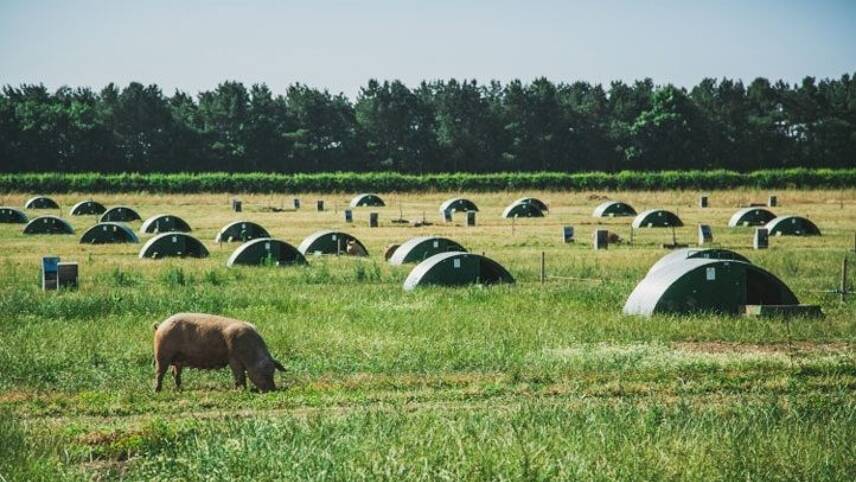Register for free and continue reading
Join our growing army of changemakers and get unlimited access to our premium content

FTSE 250 firm Cranswick had already announced a vision to become a net-zero business by 2040
The targets are set against a 2020 (financial year) baseline and entail halving Scope 1 (direct) and Scope 2 (power-related) emissions on an absolute basis. There is also an ambition to halve the intensity Scope 3 (indirect) emissions from all sources. Intensity will be measured in terms of greenhouse gas emissions per tonne of product sold.
In terms of Scope 1 and 2 emissions, Cranswick has already delivered a 59% reduction in intensity since 2016. It has certified nine of its production facilities as carbon-neutral via the PAS 2060 certification and is striving for all facilities to achieve this accreditation by the end of 2021. All facilities should also be approved to ISO 14001 standards on energy management by the end of this year.
Cranswick’s major sources of Scope 3 emissions, the firm said in a statement, include purchased goods and services and leased buildings in the upstream value chain.
The new targets bolster an ambition previously announced by Cranswick – delivering net-zero farms by 2030 and becoming a net-zero business by 2040. The firm is notably a signatory of The Climate Pledge, orchestrated by Amazon and Global Optimism. Climate Pledge signatories are required to reach net-zero by 2040 or sooner, prioritising emissions reduction over offsetting; to collaborate on climate solutions and to regularly report on emissions and climate risk.
To this latter point, Cranswick is on track to produce annual reports on climate risk, aligned with the recommendations of the Task Force on Climate-Related Disclosures (TCFD) from 2022.
“As we transition to halve our emissions by 2030 and reach Net Zero by 2040, we are taking a truly integrated approach to tackling the climate crisis,” Cranswick’s chief executive Adam Couch said.
“We have purposely set ourselves the toughest target on Scope 3 because we know we must work collaboratively across our total supply chain; we cannot do this alone.”
The SBTi requires businesses looking for approval in line with 1.5C to set Scope 3 targets if these sources of emissions account for 40% or more of their annual emissions footprint. Such targets must have boundaries that address two-thirds of total Scope 3 emissions.
Earlier this month, the Initiative announced plans to transition away from allowing businesses to certify in line with the Paris Agreement’s “well below 2C” pathway, towards verifying only 1.5C-aligned targets. Any corporate that had 2C targets approved in 2020 or earlier has until 2025 to update targets. New applications for 2C targets will stop being taken from July 2022.
Sustainable Business Covered podcast: How can we change food systems for the better?
With the UN’s pre-event for the Food Systems Summit taking place this month, the new episode of edie’s Sustainable Business Covered Podcast explores how food systems can be transformed for better outcomes for planet and people.
Click here to stream the episode, featuring exclusive interviews with professionals at Bayer Crop Science, FAIRR and AGCO.
Sarah George


Please login or Register to leave a comment.